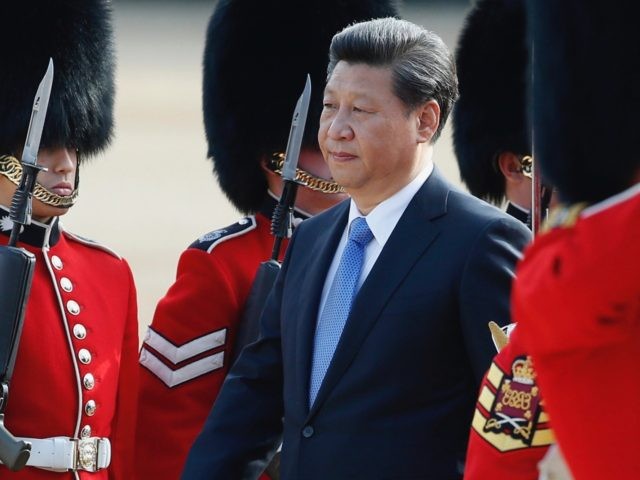Academics with ties to the Chinese Communist Party’s military have reportedly secured research funding from Britain’s leading national security laboratory.
The Ministry of Defence’s Defence Science and Technology Laboratory (Dstl), one of the UK’s most secretive military research facilities, has been found to have shelled out “substantial sums” of money to Chinese-tied researchers.
Projects at the University of Bristol, Imperial College London, and Heriot-Watt University in Edinburgh have received financial support from the Ministry of Defence facility in Porton Down, The Times reported on Monday.
The report claimed that three academics at Bristol University’s Composites Institute have lectured at Zhejiang University in China and even went on to open a laboratory there. The professors are said to be experts in crafting novel materials for the use in extreme conditions such as jet engines, satellites, nuclear power stations, and other “stealth structures”.
The government-backed Australian defence and strategic policy think tank, the Australian Strategic Policy Institute (ASPI) classified Zhejiang University in 2019 as “high risk” for its “moderately high number of defence laboratories, relationship with defence industry, and links to economic and cyber espionage”.
Imperial College London and Heriot-Watt University’s links to the Chinese military were both laid out in a report this month from the think tank Civitas, entitled Arming China? The Chinese Military Complex and Its Potential Exploitation of Scientific Research at UK Universities.
Imperial College London — which signed a £5 million deal with CCP-linked tech giant Huawei last year— was found to have at least “four research centres sponsored by major Chinese weapons suppliers”, including the development of China’s next-generation stealth fighters.
Heriot-Watt University was also mentioned in the report for receiving money from UK defence groups to partner with the Chinese to develop radar jamming technology.
The university was found to have worked on another project with one of China’s top defence research universities, Harbin Engineering University, to create a password-breaking tool, which could potentially lead to “serious leaks of sensitive information”.
Imperial College claimed that the details in the Civitas report “completely mischaracterise the true nature of our sponsorship arrangements”. Heriot-Watt claimed that any research carried out by staff complies with national security and intellectual property laws.
Universities in Britain have seen increased scrutiny for pairing with the Beijing dictatorship, with MI6 reportedly investigating “some of the most prestigious universities in the country” for possibly violating national security laws by working with Chinese weapons developers.
Some 200 British academics are also reportedly under investigation for allegedly sharing military technology with the communist regime.
The author of the Civitas report, Radomir Tylecote, said: “British taxpayers are paying for research that might unintentionally help China’s military soon attain a potentially dominant position,” adding: “This is strategically incoherent – especially when UK spending on research for its own military needs is so anaemic.”
Follow Kurt Zindulka on Twitter here @KurtZindulka

COMMENTS
Please let us know if you're having issues with commenting.